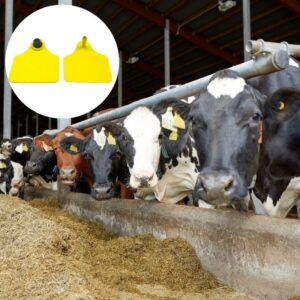Professional Guide: How to Properly Apply Cattle Ear Tags for Optimal Results
Proper ear tag application is crucial for successful cattle identification and management. This comprehensive guide will walk you through the essential steps and techniques to apply Cattle Ear Tags to ensure proper tag placement, minimize stress on your animals, and maximize tag retention.
Essential Equipment Needed:
- Quality tag applicator
- Appropriate ear tags
- Disinfectant solution
- Clean workspace
- Proper restraint equipment
Proper Tag Placement and Application Techniques
The success of ear tagging largely depends on precise placement in the middle one-third of the ear, between the two large veins. When applying cattle ear tags, it’s essential to use proper hygiene and follow a systematic approach. The tagging site should be thoroughly cleaned with a disinfectant solution to prevent infection and ensure optimal healing.

Essential Steps of apply Cattle Ear Tags
- Preparation Phase:
- Clean and inspect the tag applicator
- Prepare disinfectant solution
- Load the tag properly onto the applicator
- Secure the animal appropriately
- Application Process:
- Clean the tagging site
- Position the applicator correctly
- Apply firm, quick pressure
- Verify proper tag placement
- Post-Application Care:
- Monitor for signs of infection
- Document tag numbers
- Maintain accurate records

Advanced Tips for Tag Retention and Animal Safety
Creating an efficient and safe workstation is crucial for successful tag application. The person doing the tagging should ensure they have enough tags and applicators on hand before beginning. An old and rusty tag applicator may be difficult to squeeze or make a loud noise that could startle the animal.
Best Practices:
Important Considerations:
- Tags placed too far toward the head or tip may become snagged
- Avoid areas with thicker cartilage
- Ensure the tag is inserted completely onto the applicator pin
- Use rubbing alcohol or other disinfectant to prevent spread of bacteria
For optimal results, consult your veterinarian about specific recommendations for your herd. Remember that proper technique and attention to detail during the tagging process will help prevent complications and ensure successful identification of your cattle.
